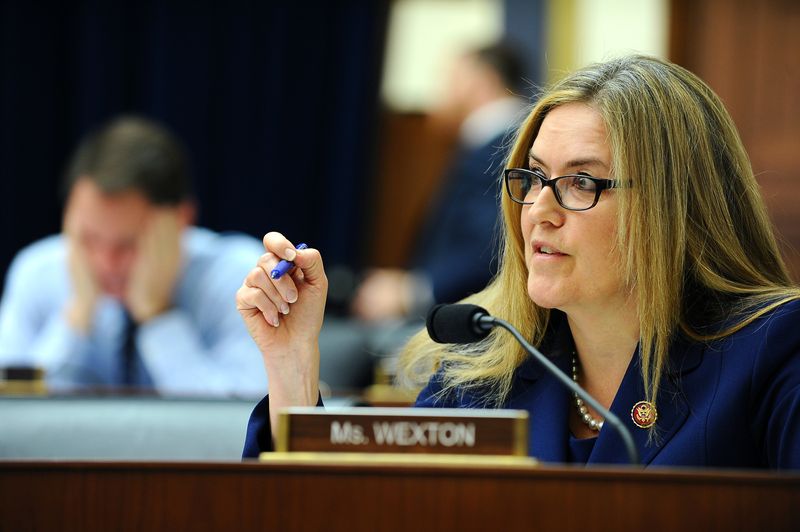
© Reuters. FILE PHOTO: Rep. Jennifer Wexton, D-VA questions Treasury Secretary Steven Mnuchin during testimony before the House Financial Services Committee hearing on “The Annual Testimony of the Secretary of the Treasury on the State of the International Financial
By Katharine Jackson
WASHINGTON (Reuters) -U.S. Representative Jennifer Wexton, a Virginia Democrat, on Monday said she would not seek reelection after doctors updated her diagnosis to a more serious condition, which she likened to “Parkinson’s (disease) on steroids.”
The 55-year-old congresswoman, who represents a suburban area of Northern Virginia near Washington, said she would serve out her current two-year term, which ends in January 2025, but would spend time with her family and friends instead of running again.
The third-term congresswoman announced in April that she had been diagnosed with Parkinson’s but would continue to work while being treated for the disease, which was affecting her speech.
After finding the treatment was not as effective as had been hoped, doctors updated her diagnosis to progressive supranuclear palsy (PSP), she said in a statement on Monday, calling the condition “a kind of Parkinson’s on steroids.”
“I’ve always believed that honesty is the most important value in public service, so I want to be honest with you now, this new diagnosis is a tough one. There is no ‘getting better’ with PSP,” she said, announcing her decision on Monday. “I’m heartbroken to have to give up something I have loved.”
PSP is a neurological disorder that affects body movements, causing problems with walking, eye movement, and swallowing and worsens over time. The rare condition is characterized by symptoms that are similar to Parkinson’s but more difficult to treat.
“There is currently no treatment that effectively stops or slows the progression of PSP, and symptoms usually do not respond well to medications,” the National Institute of Neurological Disorders and Stroke said on its website.
Wexton flipped a seat held by Republicans for decades in 2018 as voters veered away from then-President Donald Trump.
Source: Investing.com




























